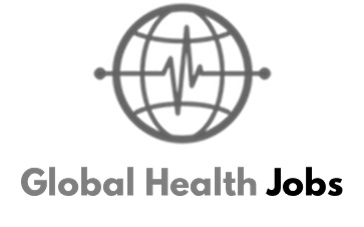Gender Strategy and Implementation Framework Consultant, CATALYZE Ethiopia: MS4G
USAID CATALYZE Ethiopia: MS4G
Strengthening Food Security and WASH Through Market-Based Approaches
USAID CATALYZE Ethiopia: MS4G is designed to benefit the Ethiopian people, build community resilience, and strengthen rural-urban linkages in the areas of food security, and Water, Sanitation, and Hygiene (WASH). MS4G invests in developing relationships with private sector players, co-investing in inclusive business models, advisory services, digital solutions, and market-based initiatives that increase the resilience and sustainability of Ethiopian enterprises and employment for women and youth. The project supports activities in Addis Ababa and the secondary cities of Ethiopia.
To strengthen the private sector in the food security and WASH sectors, MS4G uses a market-based approach to deliver business development and financial advisory services to Small and Medium Enterprises (SMEs). The project leverages Business Advisory Service Providers (BASPs) pay-for-result (P4R) awards and co-creates and co-fund partnerships, to enhance enterprises’ performance, product/service delivery, and inclusion. The activities are designed to build institutional capacity, enhance knowledge and skill transfers through workforce development initiatives, advance the business enabling environment, accelerate digital transformations and scale best practices to increase productivity and quality.
Scope
The objective of the consultancy is to undertake a comprehensive gender analysis of Palladium’s MS4G program in Ethiopia, and to develop a robust and actionable gender strategy and implementation framework, in consultation with the program team.
The gender strategy will (1) provide an overview of gaps in participation by gender which may affect project results outlined in the theory of change, (2) identify potential priority intervention areas that build on good practices from Ethiopia and/worldwide to address key inequalities among genders, focusing on women and men, and girls and boys, and (3) anticipate potential risks and differential effects, and provide approaches for monitoring and mitigation.
The strategy will build on Palladium’s existing work and successes and provide a roadmap, including tools and approaches to achieve gender and social equitable outcomes in all aspects of Palladium’s MS4G project.
Duties and Responsibilities
1. Conduct Project Level Gender Assessment
Conduct a deep dive assessment including desk research of secondary sources containing qualitative and quantitative data, and stakeholder consultations to document key social and gender inequalities and opportunities in the sectors associated with the MS4G program.
Identify gender dynamics and key drivers of change to achieve the program goals
Conduct a comprehensive review of program documents and field visits (as needed) to understand the overall program and the gender equality and equity approaches and gaps
Assess and document progress in achieving gender equality and equity in program areas to date
Discuss with project staff to gauge capacity and assess how effectively the project is currently addressing gender equity and equality
Conduct the assessment in a way to build capacity of project team to apply gender analysis for program planning, implementation, and monitoring, including an understanding why and how issues affect women and men differently within a particular context and what options exist to address them
2. Develop Gender Transformative Strategy and Action Plan
Based the findings of the gender and social assessment, develop practical and actionable strategy for mainstreaming gender equality and equity that can be adopted by the MS4G program
Provide recommendations on how project activities may be better designed and implemented to ensure that both women and men, as well as members of socially disadvantaged and/or minority groups benefit equitably from MS4G investments.
Prepare and present a report on how the program can respond to the needs of women and men
Develop an implementation framework together with project leads to mainstream gender into all components of the MS4G program including the planning, implementation, monitoring and evaluation, as well as reporting.
Support program personnel to develop an action plan for the integration of gender transformative approaches in the day-today implementation of project activities, including in program related documents such as technical briefs, analytical reports, assessments, and communication strategy.
3. Develop Monitoring Framework
Develop a monitoring framework to track progress against the agreed upon gender strategy
Develop and integrate result indicators for gender equality and women’s empowerment in the overall program M&E framework
Build the capacity of program leads and M&E teams to track progress and make course corrections as needed as part of the MEL process
Deliverables
The consultant is expected to deliver:
A report of the gender assessment, key gaps and opportunities
A comprehensive and actional gender strategy for the MS4G project
Period and Place of Performance
Place of performance is Addis Ababa Ethiopia with some field visits to project sites, security situation permitting. The consultancy will be conducted in approximately 25 days over 3 months from June-August 2022.
Qualifications
An advanced postgraduate degree in social science or a related discipline (gender studies, development studies).
At least fifteen (15) years of experience in poverty reduction, social inclusion, and gender work in an international development context, especially in East Africa.
Ability to quickly integrate a team, learn about a program and work independently with little supervision
Demonstrated experience in participatory development. Experience in planning and conducting consultations with a wide range of stakeholders and analyzing and communicating results.
Demonstrated experience in gender analysis in areas such as food security and WASH; research skills (qualitative) and analytical skills
Demonstrated track record of developing a strategy and action plan
Experience with KPIs and monitoring plan/indicators
Working knowledge and experience in private sector development, food security, workforce development, digital economy, business enabling environment and capital mobilization
Knowledge of gender and social issues in the Ethiopian context is a plus.
Ability to write high-quality analytical papers and reports on time.
Exhibit responsible and flexible attitude and capable of managing a variety of tasks with minimal supervision.
Suggested Qualifications:
An advanced postgraduate degree in social science or a related discipline (gender studies, development studies).
At least ten (10) years of experience in poverty reduction, social inclusion, and gender work in an international development context, especially in East Africa
Demonstrated experience in participatory development. Experience in planning and conducting consultations with a wide range of stakeholders, analyzing and communicating the findings in the form of high-quality reports, such as a strategy and action plan.
Experience in managing and carrying out technical analysis on gender, social and poverty issues in project designs, assessments, and performance monitoring plans
Working knowledge and experience in private sector development, food security and WASH
Knowledge of gender and social issues in the Ethiopian context is a plus.
Ability to write high-quality analytical papers and reports on time.
Exhibit responsible and flexible attitude and capable of managing a variety of tasks with minimal supervision.
Apply now
Share
Save Job
More Information
- £ Salary Offer POA
- $ Salary Offer POA
- Experience Levels Senior
- Total Years of Experience 0-5




